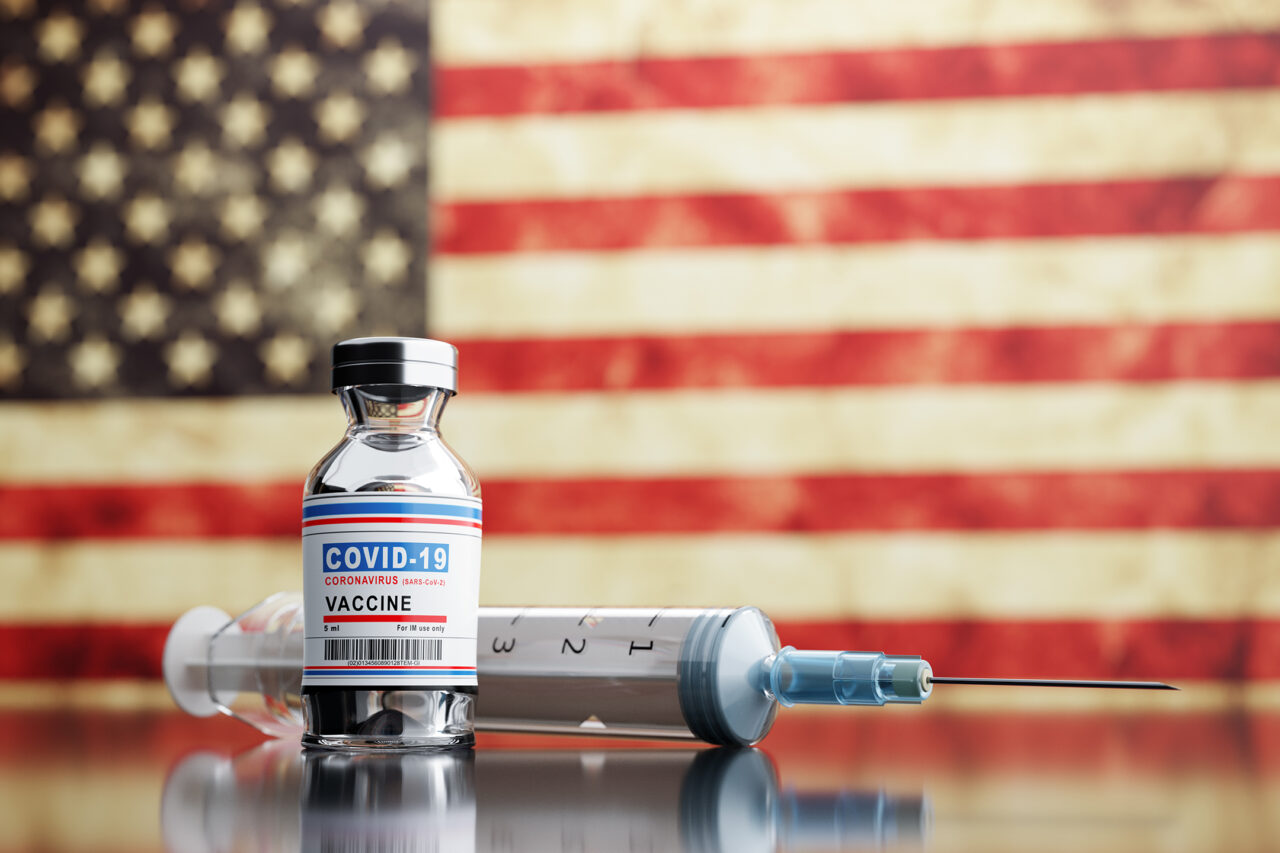

The Biden Administration’s sweeping vaccine mandate, a key stepping-stepping stone on its “Path Out of the Pandemic,” will soon compel COVID-19 vaccinations for the majority of healthcare workers across Texas and the rest of the country. Frequently referring to COVID-19 as a “pandemic of the unvaccinated,” the Administration has called on the Centers for Medicare & Medicaid Services (“CMS”) to publish an Interim Final Rule with Comment Period (“IFC”) by October, including vaccination requirements for healthcare workers.
In an announcement on September 9, Department of Health and Human Services Secretary, Xavier Becerra, opined: “There is no question that staff, across any health care setting, who remain unvaccinated pose both direct and indirect threats to patient safety and population health.” With the Administration’s view in mind, and with the expectation that a vaccine mandate will substantially increase vaccination rates among healthcare workers, the IFC will apply to all providers who participate in the Medicare and Medicaid programs and require vaccination of the vast majority of all staff in hospitals and other CMS-regulated settings. This story highlights in broad strokes what to expect from the IFC and the steps Texas healthcare employers should take in preparation for compliance.
The Majority of Healthcare Employers Must Comply
The IFC is expected to require all providers that receive Medicare or Medicaid reimbursement to require employee vaccinations. This will encompass but is not limited to, nursing homes, hospitals, dialysis facilities, ambulatory surgical settings, and home health agencies. Compliance with the vaccine mandate requirements will be tied to Medicaid and Medicare Conditions of Participation. Providers who fail to comply with the IFC risk the loss of critical Medicare and Medicaid reimbursements. Considering these funds comprise a very significant portion of the revenue of most participating providers, some as much as fifty percent or more, most will have no option other than compliance.
Warning: Undefined variable $posClass in /home1/mjhnewsc/public_html/wp-content/plugins/ap-plugin-scripteo/lib/functions.php on line 1078
Additionally, even healthcare employers who do not participate in Medicare or Medicaid programs may still be required to impose vaccine mandates under the imminent OSHA Emergency Temporary Standard that will apply to employers with one hundred or more employees, with limited exceptions. Government contractors likewise face such requirements. Thus, virtually all healthcare employers can expect to be required to adopt mandatory vaccination policies.
The Mandate Will Apply to the Majority of Healthcare Workers, With Very Limited Exceptions
Warning: Undefined variable $posClass in /home1/mjhnewsc/public_html/wp-content/plugins/ap-plugin-scripteo/lib/functions.php on line 1078
Both the Biden Administration and CMS have indicated that essentially all employees in CMS-regulated healthcare settings are subject to the mandate, including clinical staff, individuals providing services under arrangements, volunteers, and staff who are not even involved in a direct patient, resident, or client care.
Although the particulars of the mandate remain uncertain until the IFC is released, healthcare employers can glean important insights from the both the “Path Out of the Pandemic” plan itself and other federal guidance that has already been published. The “Path Out of the Pandemic” plan places mandatory vaccination requirements on three broad categories of employees: (1) healthcare workers; (2) federal employees and contractors; and (3) employees of employers with one hundred or more employees. However, there is a notable exception to the mandate for employees in the third category: a carve-out allows employees to opt-out of receiving the COVID-19 vaccine if they produce a negative test result on at least a weekly basis before coming to work. No such testing opt-out is included in the current description of the healthcare worker mandate.
Warning: Undefined variable $posClass in /home1/mjhnewsc/public_html/wp-content/plugins/ap-plugin-scripteo/lib/functions.php on line 1078
The IFC will likely be similar to the guidance for federal employees and contractors, recently issued by OSHA. The guidance provides that all covered employees must be fully vaccinated (two weeks since receiving the final dose of a COVID-19 vaccine, as recommended by the manufacturer) by December 8, 2021, unless they are legally entitled to an accommodation for a disability (including medical conditions) or sincerely held religious belief, practice, or observance. Covered healthcare employers should therefore expect the IFC to require all employees to be vaccinated by an established deadline, absent entitlement to a disability or religious accommodation.
Healthcare Worker Shortages Raise Concerns
Despite the expectation that a mandate will increase vaccination rates, many healthcare employers and associations, including the American Hospital Association, have expressed concerns that some vaccine-resistant healthcare workers may resign instead of rolling up their sleeves, thereby intensifying an already severe healthcare worker shortage. For example, in New York, the number of unvaccinated healthcare workers has dropped by thousands following the announcement of the state’s vaccine mandate, placing New York among the top states for healthcare worker vaccination nationally. However, due to the substantial number of employees who continue to refuse vaccination, the mandate also enough strain on the healthcare system to lead a number of New York hospitals to initiate emergency staffing plans and halt some services, including elective procedures and even labor and delivery services. As a result, New York’s governor declared a state of emergency, allowing her to call up the National Guard to fill staffing shortages, open a crisis operations center for health care facilities, and waive licensing requirements for out-of-state healthcare workers.
For Texas healthcare employers a similar scenario is not out of the question. While already facing staffing shortages, some Texas healthcare employers who implemented mandatory vaccination policies this year lost some vaccine-resistant employees. For example, over 150 employees of Houston Methodist Hospital resigned or were terminated following the dismissal of a federal lawsuit filed by employees that challenged the hospital’s vaccine mandate. This could foreshadow what other healthcare employers could face after the issuance of the IFC. In this instance, however, employees who do not want to get vaccinated will have far fewer alternative employment choices. This strain may be felt most deeply by rural providers, several of which have expressed concerns that they may lose up to twenty-five percent of staff due to the mandate and would have to consider ending services like labor and delivery or shuttering altogether.
CMS recognizes this concern and, as explained by CMS Administrator Chiquita Brooks-LaSure in an interview with NPR, “did not undertake this decision lightly.” In support of the mandate, Ms. Brooks-LaSure noted that unvaccinated healthcare workers who contract COVID-19 or must quarantine also contribute to staffing shortages. She also suggested that the healthcare worker shortage may not be as severe as many believe. The true impact on healthcare systems in states like Texas, where vaccination rates are below the national average and vaccine hesitancy remains high, will not be known until enforcement of the mandate goes into effect.
Healthcare Employers Should Begin Preparations Now
With the IFC looming, Texas healthcare employers who have not already adopted vaccine mandates should begin preparing for compliance. First, they should develop and implement procedures for determining the vaccination status of their workforce and decide how best to facilitate employee vaccinations. Additionally, the IFC will almost certainly require healthcare employers to obtain proof of vaccination. Thus, employers must have a system to determine and verify whether employees are vaccinated. The system should include a way of securely storing verified employees’ pertinent vaccine information. To avoid running afoul of confidentiality and federal discrimination laws, they should affirmatively instruct employees not to provide any additional medical or family history information; and remember that employees’ vaccination status and records constitute confidential medical information that must be safeguarded. Additionally, they should review policies as they apply to the availability and use of leave for getting vaccinated and dealing with side effects.
Healthcare employers must also publicize and prepare to evaluate and respond to accommodation requests from employees seeking medical/disability and religious accommodations. This will include training managers, especially those responsible for communication with employees about the policy, on how to recognize accommodation requests and the process to follow when an accommodation is requested.
Critically, considering the potential increased impact the vaccine mandate may have on any existing staffing shortages, it would also be prudent to review and update emergency staffing plans, including identification of potential supplemental staff, adjusting work schedules, and recruiting additional staff.


